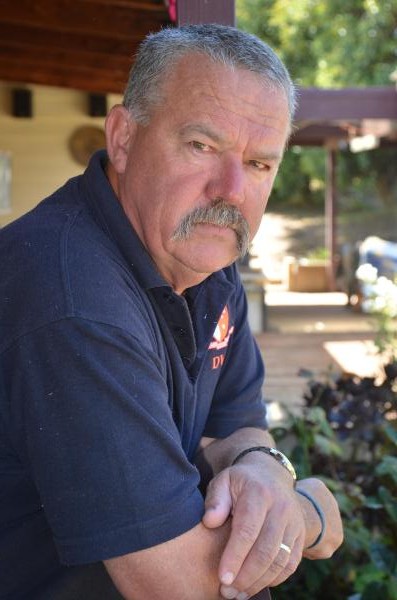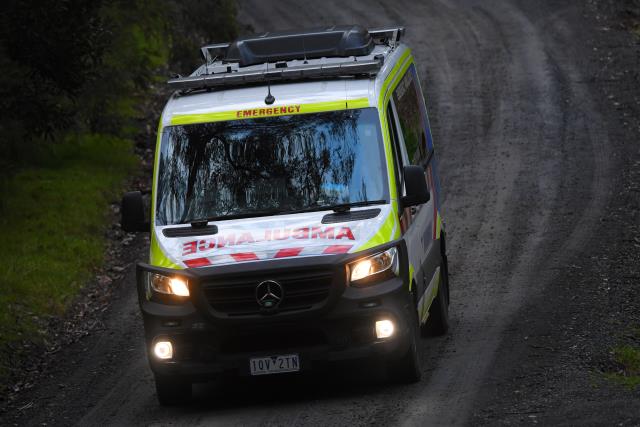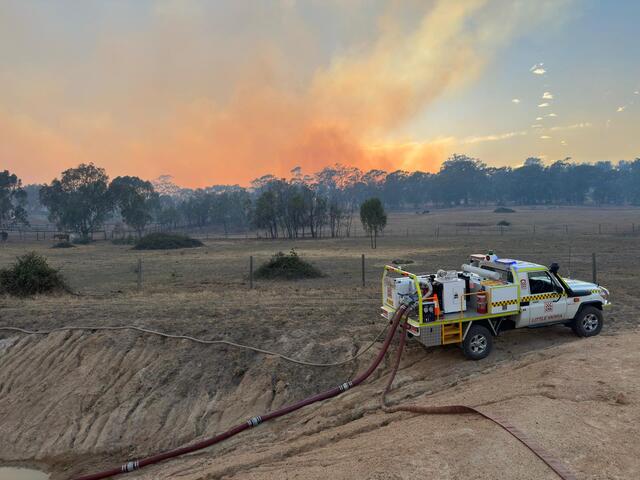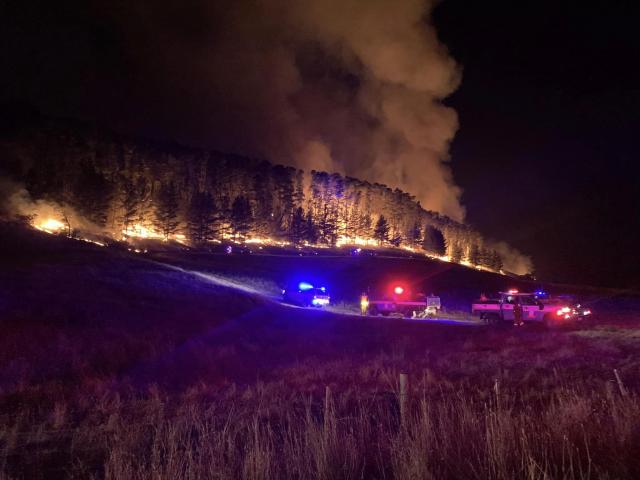DON’T mention the word ‘accident’ to Geoff Exton.
And don’t expect any sympathy if you’re the drink-driver who kills their best friend … or the texter, the speeder, the one showing off to your friends.
Having investigated 1500 road deaths with Victoria Police’s Major Collision Investigation Group, Exton, who started out as a mechanic and tow-truck driver before joining Victoria Police in 1979, makes no apologies for what might seem to some a black and white view of criminal driving.
“If someone runs up the back of someone, it’s careless; if there’s alcohol involved, it’s criminal; if it
was accidental the coppers wouldn’t turn up,” says the retired Yarra Glen cop who spent 22 of his 30 years in the force uncovering the reasons behind the crashes that killed, and bringing those responsible before the courts.
He has a lifetime of experience in a job few survive intact. Fortunately for road users, their families and future investigators, he’s still on the case … passing on his experience, knowledge and, no doubt, his uncompromising approach to the task, through his role with the Road Policing investigators Course at the Police Academy.
“We don’t like the word ‘accident’,” he says “ … because we just don’t deal with them.”
Occasionally, he says, the cause is environmental – poor road engineering, mechanical failure, but it’s rare.
With very few exceptions it’s always the driver at fault. He estimates mechanical failure at under half a per cent.
“An investigator has to look at all these factors and if you can fix the factor, you’re probably going to
save serious injury or death,” he says.
“What we need to address, and I think the problem we have in the community, is referring to them (crashes) as accidents. While we’re doing that we’re not addressing the real issues.
He is also on the case of young drivers, working with paramedic and Yarra Ranges councillor Jason Callanan as a presenter at his RoadWhys sessions where he talks about the consequences of driving a car.
“I say in 22 years I had in the job I had the great satisfaction of putting people in jail. When they ask why, I tell them because they’re not going to be driving towards my wife and my family in the reckless way they did before,” he says.
Driving home the repercussions of criminal driving is challenging.
“We’re talking about five, 10 and 20-year jailable offences committed a couple of times every day that the community doesn’t understand can lock people up for a very long time,” he says.
“People think they might lose their licence or get a fine but if you’re over .05 and seriously injure a passenger you’re looking at five to 10 years in jail. If there’s a death it becomes culpable and becomes 20 years in jail.”
Does he have any sympathy for the driver?
“None at all … after dealing with 1500 road deaths the only sympathy I had went to the victims’ families.
“When you investigate the death of a human being from a crash you look at the driving prior to and well before and usually there is a course of conduct from these people.
“People will say they only had three or four (drinks), five or six, eight, nine … and they will say they didn’t mean it at the time.
“Over the years I’ve done some shocking jobs from sheer stupidity to alcohol and drugs, so let’s not make excuses. As a driver you know; if you’re a P-plater you know you don’t drink and drive. If you do you’re just flying in the face of the legal system and then you take someone’s life … it can’t get any worse than that.”
There are no winners when someone’s killed in a car crash … not even the investigators.
Exton says he’s never seen a family who have lost a loved one walk away from court satisfied with the result.
“You go to the family and say no matter what the outcome you can’t give the boy back, then you go to the other family and say I’m going to put your boy in jail for 10 years.
“As an investigator, that side is just shocking, but I got a lot of satisfaction in finding out why it happened. That’s what drives (a charge of) criminal negligence being put before the courts and if it leads to someone going to jail, so be it.”
The expertise garnered over the years by members of the Major Collision Investigation Group means there is rarely a crash where the cause can’t be identified, and a remedy sought.
“The most important part of our squad now is we’re so good at what we do we very rarely leave a stone unturned,” Exton says.
“There’s nothing we can’t tell you about a motor – we can tell the speed from the skidmarks and from how far back the headlight’s been pushed, we have blood tests that tell the dynamics prior to the collision.
“We look at (the) Homicide (squad) and see how good they are at what they do, but the Major Collision Squad is an unbelievable group of people doing a sensational job on our roads,” he says.
“We leave nothing to chance and that’s what’s putting all these people in jail.”
There are more cars on the road than in the late ’70s when the road toll was over 1000, more registered drivers on the roads, more drivers doing more kilometres, but the road toll has decreased dramatically.
As the investigation techniques and technology gets better, Exton says he has no doubt the aim to lower the toll to 237 by 2017, when the Arrive Alive campaign was launched in 2008, is achievable.
“If I can give all our young highway patrol people insights into the way I investigated crashes, the way I was taught, and make that investigation in Victoria better, we will identify more environmental factors, will identify more mechanical faults or failures, identify more criminally negligent drivers that our system will deal with and I’m hopeful we will go further to lowering that road toll,” Exton says.
It’s not all about investigation or police work either.
Exton has the upmost respect and appreciation for the work SES and CFA volunteers do at crash scenes, the paramedics, the air ambulance that has cut down the critical time factor in getting injured people to hospital, hospitals such as The Alfred with their amazing medical teams, and legislation such as the hoon legislation which he says have all helped.
“If we all work together it’s achievable. If that means taking another 50 or 60 off the toll it means taking hundreds out of the serious injury list and may take hundreds more out of the permanent injury list,” he says.
“That’s significant.”
Safety is no accident

Digital Editions
-

Healesville remembers lost ambos
With the coming of January, the Healesville community pauses for a moment of recognition for two ambulance drivers who died on their way to attending…





